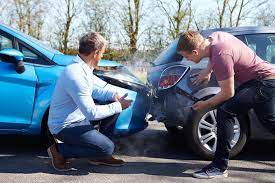Car accidents are unexpected events that can be incredibly overwhelming. In the midst of the chaos and stress that follow a collision, it’s crucial to know how to navigate the aftermath responsibly. From ensuring the safety of all parties involved to handling insurance claims, this comprehensive guide aims to shed light on the essential steps you should take after a car accident.
- Prioritize Safety:
The immediate aftermath of a car accident can be disorienting, but prioritizing safety is paramount. Begin by checking yourself and others for injuries. If anyone requires medical attention, call for emergency services immediately. If the vehicles are causing a hazard or obstruction, consider moving them to a safer location, if possible.
- Call the Authorities:
Regardless of the severity of the accident, it’s advisable to call the police. They will document the incident and create an official report, which can be crucial when filing an insurance claim. Be sure to obtain the names and badge numbers of the responding officers.
- Exchange Information:
Exchange essential information with the other parties involved in the accident. This includes names, contact information, insurance details, and license plate numbers. Additionally, gather contact information from any witnesses, as their statements may prove valuable later.
- Document the Scene:
In the age of smartphones, documenting the accident scene has never been easier. Take photographs of the vehicles, the surrounding area, and any visible damages. These images can serve as valuable evidence during the claims process.
- Do Not Admit Fault:
It’s natural to feel the urge to apologize or accept blame after an accident, but it’s crucial to refrain from admitting fault. Fault determination is a complex process, and admitting guilt prematurely may impact your ability to recover damages.
- Seek Medical Attention:
Even if you don’t immediately feel injured, it’s essential to seek medical attention promptly. Some injuries may not manifest symptoms right away, and a medical evaluation can help identify and address any issues early on. Keep a record of all medical appointments and expenses for potential reimbursement.
- Contact Your Insurance Company:
Notify your insurance company about the accident as soon as possible. Provide them with the necessary details and be truthful in your account of the events. Familiarize yourself with your coverage to understand what expenses may be eligible for reimbursement.
- Preserve Evidence:
Preserve any evidence related to the accident, such as medical records, repair estimates, and communication with the other parties involved. This documentation can play a crucial role in building a strong case if legal action becomes necessary.
- Consult with an Attorney:
In complex cases or when facing difficulties with insurance claims, it may be beneficial to consult with a personal injury attorney. They can provide guidance on your rights, handle negotiations with insurance companies, and represent you in legal proceedings if needed.
Conclusion:
Experiencing a car accident is undoubtedly stressful, but taking the right steps in the aftermath can make a significant difference. Prioritize safety, gather information, document the scene, and communicate effectively with authorities, witnesses, and insurance providers. By following these steps, you can navigate the post-accident process with greater confidence and ensure that you’re taking the necessary measures to protect your well-being and legal rights.



